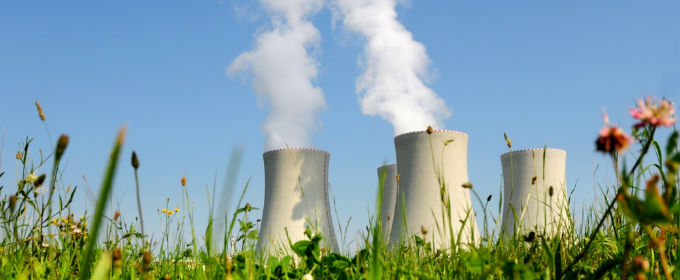The recent suspension of the Wylfa Nuclear power project has been seen by some as a potential opening for small modular reactors. Here Professor Richard Taylor, the BNFL Chair in Nuclear Energy Systems, at The University of Manchester’s Dalton Nuclear Institute looks at what needs to happen for small modular reactors to actually become part of the UK energy solution.
- Japanese firm Hitachi’s decision to halt its Wylfa Newydd project on Anglesey poses risk to the future of the UK nuclear industry.
- UK Government must be clear on its policies regarding small modular reactors and whether they can offer a genuine prospect for nuclear energy in the UK.
- Failure to provide this clarity or provide a viable alternative will lead to further delays, costs and will ultimately not help solve the future energy situation in the UK.
Recent UK Government moves towards promoting the development of Advanced Modular Reactors (AMRs) are seen as the next and perhaps final hope for the UK’s pro-nuclear community. But what does it mean to be pro-nuclear? The recent suspension of the Wylfa project by Horizon, alongside the abandonment of the Moorside new build in West Cumbria, should compel us all to re-examine this question. These events serve to illustrate the vast chasm that now exists between what it means to be an advocate of the deployment of nuclear technology and being a supporter of the nuclear industry. At one time these beliefs may have been synonymous, but not anymore. If you are pro-nuclear, you believe fundamentally in the power of nuclear technology to provide clean and sustainable energy and that the attendant risks are outweighed by the imperative of this goal. If you are anti-nuclear, you do not. This, of course, is a righteous argument which has been, and should continue to be, articulated with rigour and commitment on either side. One would expect the UK’s nuclear industry to reflect one of these positions and pursue it. I would even suggest, as the industry is funded largely with our tax contributions, we have the right to demand it.
Because the costs and timescales involved are so exceptionally large, the UK’s nuclear energy situation is played out in public policy. Nothing gets done without political support and public financing, either directly or indirectly. Our nuclear industry is a direct reflection of political will which, in recent months, has shown itself to be disastrously irresolute. I find it virtually impossible to draw any parallels between what the nuclear industry has become and either side of the basic debate on nuclear power. Allowing two vital infrastructure projects to fail with no credible alternative, celebrating the closure of our reprocessing facilities, dithering over the future of the fissile material we have already separated, and abrogating direct responsibility for nuclear waste disposal are all examples that fail to serve any moral position on nuclear power. We deserve better, however we feel about splitting the atom.
Nuclear projects get delivered through courage and commitment. Once you show these you have a right to make demands around reducing costs and timescales. If these basic ingredients are lacking, then such demands become irrelevant rhetoric. And this is the real risk for the industry, that it appears toothless and out of step to anyone who feels strongly about nuclear power and that it will wither and atrophy as a consequence.
Recent moves towards small nuclear represent a real opportunity to avoid this fate. Whatever emerges from Government in the next few months must somehow re-establish a connection between policy and a committed position around nuclear technology as a long term and desirable solution to the energy trilemma. The recent Government feasibility studies for AMR technologies are a positive beginning with such technologies offering the genuine prospect of a viable nuclear power solution. In the next phase a timetable must be set out that concludes at a point that anyone invested in the nuclear debate would recognise as a definitive position: Either an unwavering commitment to develop and build a fleet of such reactors on our soil, or a final abandonment of the technology in favour of a viable alternative. Clear and credible points must be outlined where such definitive decisions can be made and we must have the courage to make them. Let small nuclear grow and thrive or put it out of its misery, a protracted demise through chronic vacillation will not serve anybody.
